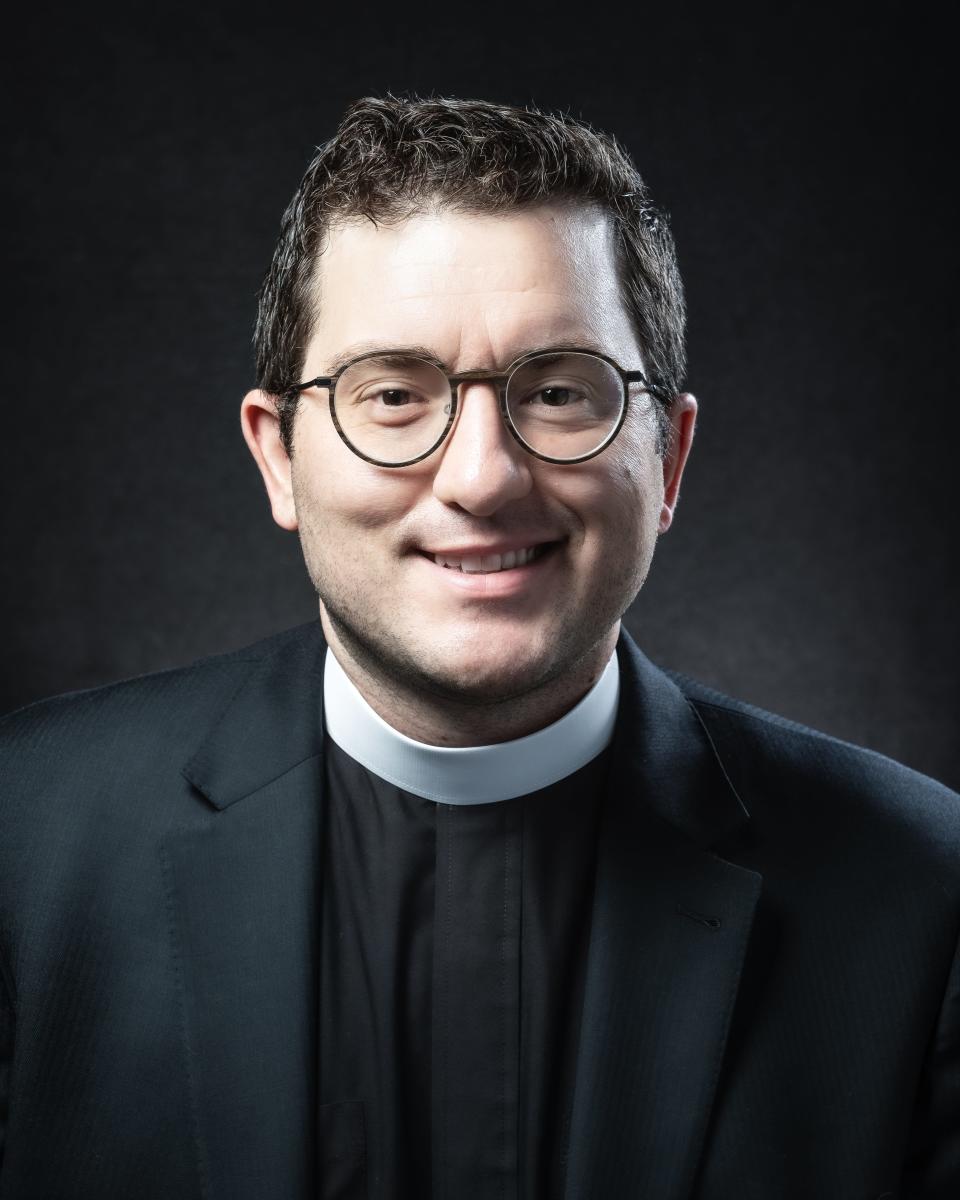Easter reminds us that God is a gardener, helping us grow forth in the love of Christ
- Oops!Something went wrong.Please try again later.
The late philosopher and the most famous atheist-turned-deist of the 20th century, Antony Flew, once offered a parable of what he saw as the trouble with how we talk about God. He wrote
"Two explorers came upon a clearing in the woods, in which they found flowers and weeds. 'Some gardener must tend this plot,' said one explorer. But the other replied, 'No, there is no gardener.' So they pitched camp and set a watch. No gardener appeared. 'Perhaps,' said the believer, 'he is an invisible gardener.' So they built a barbed-wire fence, electrified it and patrolled with bloodhounds. But no cries suggested that an intruder had been shocked, and the bloodhounds smelled nothing. "However, the believer was not convinced: 'But there is a gardener, invisible, intangible, insensible, to electric shocks, a gardener who has no scent and makes no sound, a gardener who comes secretly to look after the garden which he loves.' At this point, his companion despaired, 'But what remains of your original assertion? Just how does what you call an invisible, intangible, eternally elusive gardener differ from an imaginary gardener or even from no gardener at all?'"
More: Lent is more than fish fries. How churches around Louisville will recognize the season
That is a good question.
I’m not a gardener, but I know when I’ve seen one. I can tell by the life that springs forth from their hands. Of course, the Bible pictures God as a Cosmic Gardener from the very beginning in the Genesis of the Garden, where God formed and tilled the Cosmos, cultivating life and fathering-forth humanity. The radical claim of Easter is that the Gardener comes once again to our gardens and weeds out death. It is no mistake that John’s Gospel has Mary mistaking Jesus at the Tomb for a Gardener. John writes, “Supposing him to be the gardener, she said to him, “Sir, if you have carried him away, tell me where you have laid him…” (John 20:15) In other words, the Easter Tomb has become God’s flowering pot—God tilled it, God sprung out of it and God calls us likewise into the new growth of Resurrection Life.
Now it is possible that you might be thinking: “Well, this all sounds very nice…and…spiritual, doesn’t it. But I’m interested in those things that make the world turn, like filing paperwork, and sending my kids to school, and paying bills and going to doctor appointments.” What does the cross and empty tomb have to say about “normal life”?
Simply put, the fruit of this gardener is physical, relational, social and spiritual and it makes all the difference in the world.
This gardener grows physical fruit. The reason we will one day all be resurrected…not held by our final tomb, is because Jesus—God in the flesh—was himself resurrected. He is the first-fruits in which we all will share in our own resurrection bodies. He is not only ruling as Lord of all, he is curating, cultivating, growing, pruning, fertilizing, and nourishing us for the harvest (that we likewise will share in with our bodies, Scripture states). Thus, even while our bodies are wasting away, we can be confident that through the Son, we are being nourished by his light, we are being cleansed by his blood, our hearts are being tilled open by the plow of the cross. His Gospel is being planted deep within so that we can break forth in new growth beyond the tombs that hold us into the light of a new day.
Why? Because if God's answer to death is not every bit as physical as death itself, and if his new life is not every bit as physical as life itself, then it is not really an answer to the problem of death. A Jesus whose physical body remains in the ground gives me and you no hope for a physically broken world, no hope against death, no hope against bodily viruses and the virus of sin.
But the Church today, along with thousands of eye-witnesses in the early Church and millions of Christians down through the ages, can stand with hope because Jesus has been resurrected in his body. This is key. Nobody died as a martyr in the early church because Jesus was “Lord of their heart,” but rather, because he had gone to the furthest boundaries of the impact of sin…he had gone to the deepest place of death and darkness, and had disarmed and overcome it. Without this teaching, early Christians could not have confidently given their lives in death, because they would not have possessed confidence that where they were going, Christ had already been, and had robbed death of its power. His fruit is physical.
More: Fish Fry Guys visited & ranked nearly every fish fry across Louisville. Here are their top 3

Jesus' fruit is also relational and social.
The work of this gardener Jesus sprung forth in the 1st Century into a group of life-filled people—the Church—who gave their lives away to helping others walk out of their own tombs—their own places of death. The very fact that women are listed as the primary witnesses in the Gospel accounts is a testimony to this. Think about it: In a culture where women could not testify in court, in a world where their testimony was actually valued less than that of a slave and a criminal—in that world—the early Church proudly heralded them as the first eyewitnesses to the resurrection of Jesus. They were the authoritative sources and guarantors of the traditions about Jesus. If you were making up a story in the 1st century, this is not how you would plan it out, because women had been buried in the ground of cultural inferiority. But the early Church were boldly clearing the weeds of women being classified as sub-par humans, to being active participants in salvation plan of God.
Also, when unwanted infants were exposed to the elements or left for dead when Rome was being sacked, Christians stepped in to save and raise such children precisely because they believed their gardener cared even for the lilies of the field, and thus, much more for those tossed out into the streets of men. A child does not escape death with a metaphor, but rather with the hope of a physical life.
The gardener’s fruit is spiritual.
Jesus tills open the hearts of people with the Cross so that he can drop in the seed of his Gospel, his Good News. This news proclaims that he is Lord of all, even over our addictions, and our failures, and our anger, and the various other spiritual maladies that keep us from the growth he intends for us. By his Holy Spirit that is poured out like water into the soil of our hearts, people are able to walk in the hope of a new life and do not have to remain buried alive in the ground by struggles. There is the freedom to grow into new life through the Son that draws us heavenward.
You see, I’m not a gardener, but I know when I’ve seen one. The irony of the Atheist Anthony Flew is that he came to believe in God (as a theist…) shortly before his death for the reason that the garden of Creation was simply too complex and too full with marks of a Cosmic Gardener.
Ultimately, the hope of our Gardener-God is this: To grow forth into the love of Christ who has done something in the past which makes all the difference for our present lives and for our future, and the future of our children. We…and they…do not need to fear death, either physically, or relationally, or socially, or spiritually. Why? He is risen.

Fr. Clint Wilson is rector of St. Francis in the Fields Episcopal Church in Louisville, KY.
This article originally appeared on Louisville Courier Journal: Easter: God is a gardener, helping us grow forth in the love of Christ

